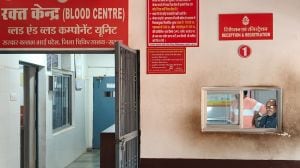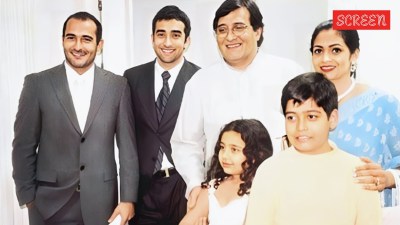Stay updated with the latest - Click here to follow us on Instagram
In Another Realm
A new portal helps the LGBTQ community to engage with their own.
 The user interface for http://www.asyouare.in
The user interface for http://www.asyouare.in
Imagine being caged in a lie, deceiving not only yourself, but also your in-laws, your wife and the rest of your family,” says a man, while describing his three-year marriage. The man, who is yet to come out about his sexual identity, was forced into an arranged marriage despite him disclosing his sexuality to his parents. “My parents think marrying a straight woman will ‘cure’ me of my sexuality, despite all that I went through they wish to put me through it again and refuse to tell people why my marriage did not work,” he adds.
According to research conducted by serial social entrepreneur, Sunali Aggarwal, who launched a Mumbai based online platform for LGBTQ networking, http://www.asyouare.in, in December along with her cousin Aditi K, a large population of LGBTQ community is yet to identify themselves as such in India. “Many are stuck in marriages with partners of the opposite sex. Because of all the stigma around homosexuality, they will never openly declare their sexuality,” says Aggarwal.
Beyond the 2.5 million LGBTQ population enumerated by the Ministry of Health and Family Welfare in 2012, activists have estimated the population of LGBTQ people in India to be at least 10 per cent of the entire population, which comes to 135 million. This has been calculated using global estimates, tracing back to the pioneering “Kinsey Reports” on sexuality conducted by American biologist Alfred Kinsey in the mid 20th century. Since then, many other estimates based in the West have placed the number as above 10 per cent as well.
Though dating applications exclusively for the LGBTQ community already exist and are actively used, Aggarwal states that As You Are attempts to provide a relatively safer platform for members of the community to meet like minded people, without the fear of discrimination and persecution. The website allows people to register themselves and create a profile, after which the identity of the person is verified, which ultimately leads to the person being placed in a chat room with another verified member who matches their profile.
“We take time to verify the individual’s identity, because we want to make sure no one misuse the platform to cause any harm to people genuinely looking to find someone from the community through the website,” explains Aggarwal. Her concerns are valid, as there have been reports of queer people being targeted by gangs using fake accounts on several dating apps. Often after meeting through the app, people exchange numbers, making their identity and their avenues to contact them available, after which fake account holders use private conversations and pictures to extort money from these people, threatening to make the data public.
Though there has been no comprehensive survey conducted in India enumerating the LGBTQ population of the country, data submitted to the Supreme Court in 2012 suggests that about 2.5 million Indians identify themselves as LGBTQ. Out of this estimate, many prefer to stay quite fearing stigma and prosecution, and would be far from eager to register themselves as a member of the LGBTQ community to government institutions.
Beyond verifying the identity of members, the co-founders remain personally invested in whether members are satisfied with who they were matched with, and also take care in deciding matches. “We have consulted psychologists before preparing questionnaires for potential members. It is an extensive questionnaire which allows us to understand what people are expecting from a potential match. We are also open to feedback regarding the questions or anything else on the site,” says Aggarwal.
“In the chatroom, individuals can decide whether they wish to disclose their names or contacts when they feel safe enough and then take it forward in whatever way they want,” says Aggarwal, further explaining that those who are unsatisfied with their match, are placed in another chat room upon their request, but under no circumstances are the individuals’ personal details disclosed to anyone without their consent.
“Right now we do the matching manually because we want to be very sensitive with the procedure and serve our customer with sustained interest, but as we upscale, we can start using an algorithm to do the same,” adds Aggarwal. Currently, most members on the website are from cities like Delhi, Hyderabad and Mumbai. The founders are hoping to increase outreach into smaller cities as well, where spaces for queer networking are limited.







